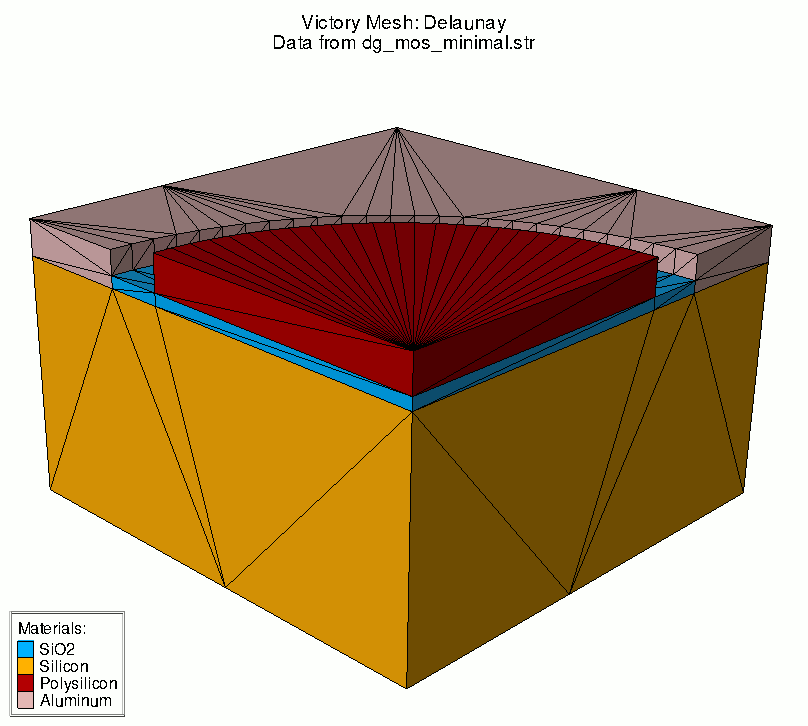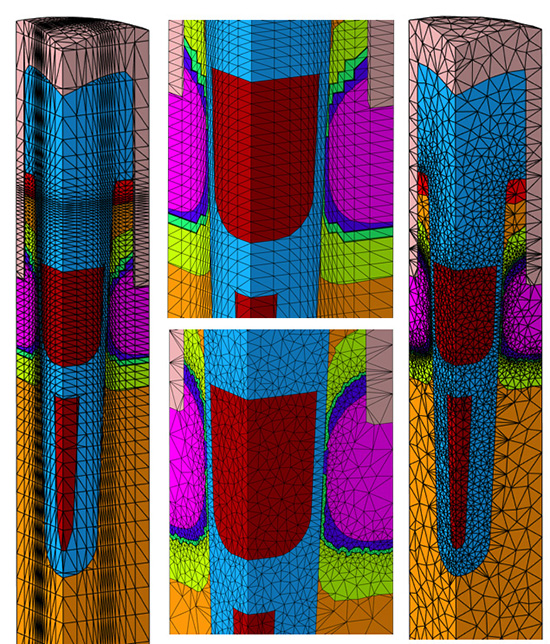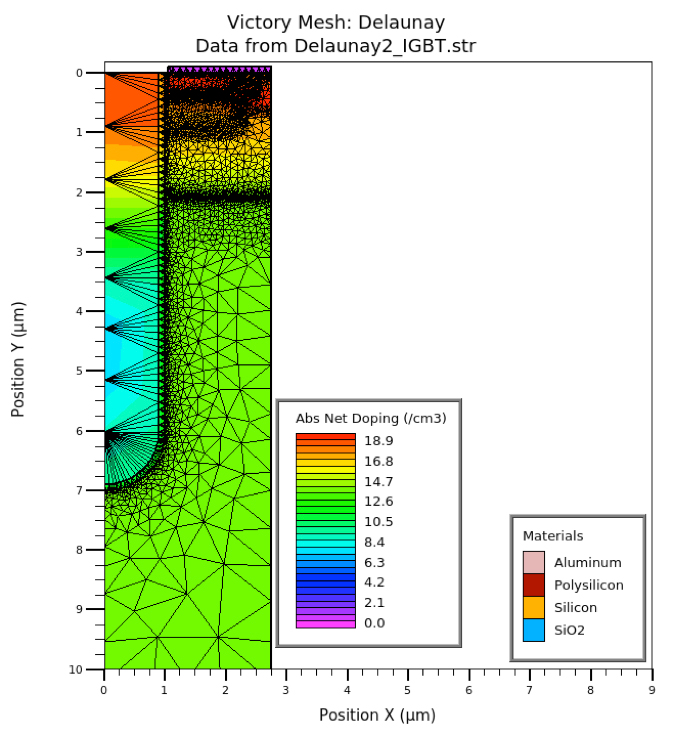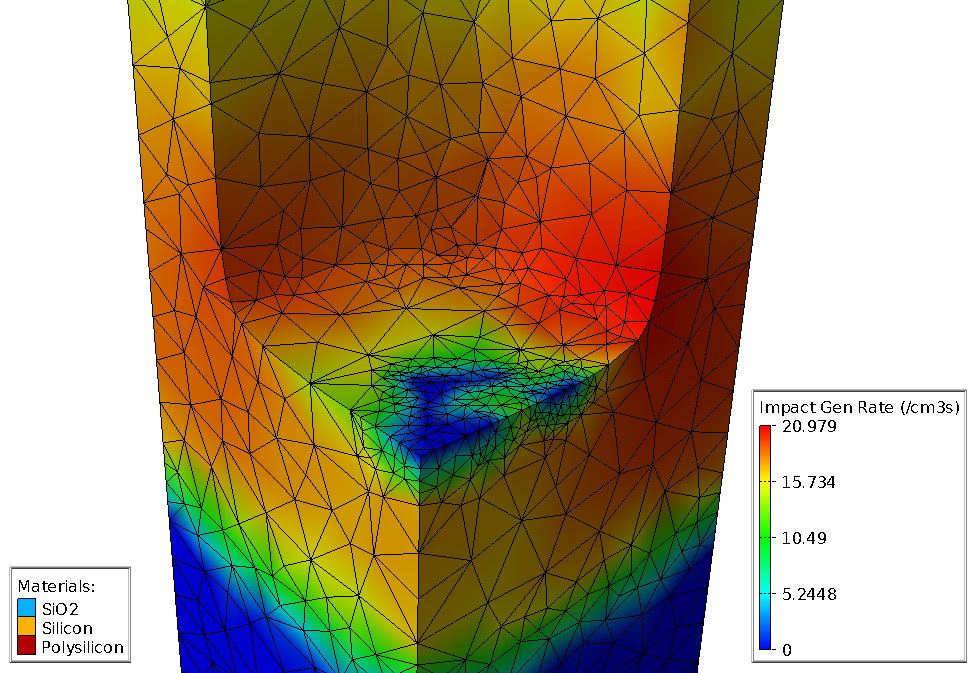Victory Mesh Generation, Remeshing, and Solid Modeling
Victory Mesh provides users with power functionality to mesh and refine existing 2D and 3D TCAD structures, as well as solid modeling capabilities to generate new 2D and 3D structures. A typical use-case involves raw geometrical and doping data from Victory Process as input to produce a refined mesh that is suitable for device simulation in Victory Device or 3D parasitic extraction in Victory RCx Pro. Alternatively, the geometry of an existing device can be modified or a completely new structure can be created, with doping, using Victory Mesh’s solid modelling capabilities.
Benefits
- Optimize 2D or 3D structure meshing for feed-forward to device simulation or RC extraction
- Perform edits like crop, slice, mirror and more
- Automated mesh refinement based on user specifications
- Create 2D or 3D Devices using Solid Modeling techniques
Applications
- Advanced CMOS and Bulk CMOS, PDSOI, FDSOI, FinFET
- Power, RF, and BCD, Power Diode, IGBT, Thyristor, GaN HEMT, SiC DMOS, SiC LMOS, etc
- Display and Amorphous- and Poly-Si TFT, IGZO TFT, LED, OLED, MicroLED
- Optoelectronics and CCD, CMOS Image Sensor, Avalanche Photodiode, PiN Photodiode, Solar Cell






Enabling the Next Generation of High-Voltage Power: Gallium Oxide Trench Schottky Diodes from Simulation to System
Victory TCAD 2025 Release
Accelerating Vertical GaN Power Technology Development with Physics-based Digital Twins for 800V DC AI Factory Power Infrastructure
Dynamic Testing for Power MOSFET